|

新サイト建設中(アメリカ突撃体験レポ本を含めた出版の資金源を模索中)
アメリカでの便利屋(旧サイト)はhttp://benriyausa.comへ
メークオーバーして移転。
 

|
Chapter Fifteen: US Literature and Americans in Literature

|

    
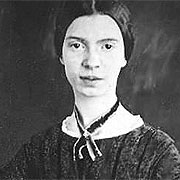 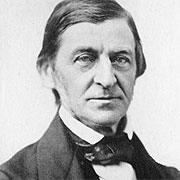   
    
   
 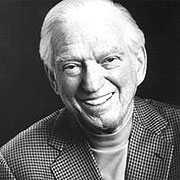   
    
  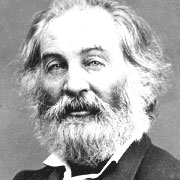  
    
American Nobel Laureates in Literature
http://tomastranstromer.net/nobel-prize/american-nobel-laureates-in-literature/
1930 – Sinclair Lewis (1885-1951) American writer. Received the 1930 Nobel
Prize for Literature “for his vigorous and graphic art of description and
his ability to create, with wit and humor, new types of characters.”
1936 – Eugene Gladstone O’Neill (1888-1953) American writer. Eugene
O’Neill won the Nobel Prize for Literature in 1936, and Pulitzer Prizes
for four of his plays: Beyond the Horizon (1920); Anna Christie (1922);
Strange Interlude (1928); and Long Day’s Journey Into Night (1957). He won
the Nobel Prize in Literature “for the power, honesty and deep-felt
emotions of his dramatic works, which embody an original concept of
tragedy.”
1938 – Pearl Buck (1892-1973) Pearl Buck, seudonym for Pearl Walsh née
Sydenstricker. American writer. Received the 1938 Nobel Prize in
Literature “for her rich and truly epic descriptions of peasant life in
China and for her biographical masterpieces.”resented with a fearless love
of truth and keen psychological insight.”
1948 – Thomas Stearns Eliot (1888-1965) British/American writer. T.S.
Eliot received the 1948 Nobel Prize in Literature “for his outstanding,
pioneer contribution to present-day poetry.”
1949 – William Faulkner (1897-1962) American writer. Received the 1949
Nobel in Literature “for his powerful and artistically unique contribution
to the modern American novel.”
1954 – Ernest Miller Hemingway (1899-1961) American writer. Brevity was
his specialty. Received the 1954 Nobel in Literature “for his mastery of
the art of narrative, most recently demonstrated in The Old Man and the
Sea, and for the influence that he has exerted on contemporary style.”
1962 – John Steinbeck (1902-1968) American writer. Received the 1962 Nobel
Prize in Literature “for his realistic and imaginative writings, combining
as they do sympathetic humor and keen social perception.”
1976 – Saul Bellow (1915-2005) American writer. Received the 1976 Nobel
Prize for Literature “for the human understanding and subtle analysis of
contemporary culture that are combined in his work.”
1978 – Isaac Bashevis Singer (1904-1991) Polish/American writer. Received
the 1978 Nobel Prize for Literature “for his impassioned narrative art
which, with roots in a Polish-Jewish cultural tradition, brings universal
human conditions to life.”
1980 – Czeslaw Milosz (1911-2004) Polish/American writer. Received the
1980 Nobel Prize for Literature for voicing “man’s exposed condition in a
world of severe conflicts.”
1987 – Joseph Brodsky (1940-1996) Russian/American writer. Received the
1987 Nobel Prize for Literature “for an all-embracing authorship, imbued
with clarity of thought and poetic intensity.”
1992 – Derek Walcott (1930- ) Saint Lucian/American writer. Derek Walcott
received the 1992 Nobel Prize for Literature “for a poetic oeuvre of great
luminosity, sustained by a historical vision, the outcome of a
multicultural commitment.”
1993 – Toni Morrison (1931- ) American writer. Received the 1993 Nobel
Prize for Literature for “novels characterized by visionary force and
poetic import,” giving “life to an essential aspect of American reality.” |
|
|
20 Iconic American Writers
By Stuart Englert on January 19, 2011
While the United States has produced thousands of talented writers, a few
dozen have penned the novels, poems and stories that comprise much of the
nation’s literary heritage. Here’s a summary of 20 of America’s most
celebrated and influential writers.
Willa Cather (1873-1947)
Born in Virginia’s Back Creek Valley in 1873, Cather was 9 years old when
her family moved to Red Cloud, Neb., where she drew inspiration for some
of her most famous works—O Pioneers!, 1913; and My √Åntonia, 1918—about
life on the American frontier.
Visit willacather.org
James Fenimore Cooper (1789-1851)
Cooper, who grew up in Cooperstown, N.Y., is best known for his five-book
Leatherstocking series, including The Last of the Mohicans, first
published in 1826. In his frontier tales, Cooper introduces the first
American hero, Natty Bumppo, a white child raised by Delaware Indians who
matures into an adventurous, honorable and fearless woodsman.
Visit http://external.oneonta.edu/cooper/
Emily Dickinson (1830-1886)
One of the nation’s most prolific poets, Dickinson wrote nearly 1,800
poems while leading a reclusive life at her family’s home in Amherst,
Mass. Few of Dickinson’s poems about art, gardens, joy, love, death and
grief were published during her lifetime, and most of her work was
discovered in her bedroom after her death.
Visit emilydickinsonmuseum.org
Ralph Waldo Emerson (1803-1882)
An ordained minister, Boston-born Emerson was a philosopher, essayist and
poet whose insightful prose explored the mind of man and his relationship
with nature. Emerson’s uniquely American vision and writing style is
illustrated in the 1836 essay Nature and the 1841 essay Self-Reliance.
Visit rwe.org
William Faulkner (1897-1962)
The Nobel Prize-winning novelist and short story writer depicted the
people, history and settings of his native Mississippi in most of his
works, including the literary classics The Sound and the Fury, 1929;
Absalom, Absalom!, 1936; Go Down, Moses, 1942; and The Reivers, 1962.
Visit olemiss.edu/mwp/dir/faulkner_william/
F. Scott Fitzgerald (1896-1940)
A native of St. Paul, Minn., Fitzgerald wrote novels and short stories
about the optimism, aspirations and excesses of the Jazz Age, including
This Side of Paradise, 1920; The Beautiful and the Damned, 1922; and The
Great Gatsby, his 1925 masterpiece. While sales of its initial printing
were disappointing, The Great Gatsby is considered among the greatest
novels of the 20th century.
Visit fscottfitzgeraldsociety.org
Robert Frost (1874-1963)
Born in San Francisco, the four-time Pulitzer Prize winner wrote much of
his poetry about rural New England. Some of his best-known poems—”After
Apple-Picking,” “Mending Wall,” “Birches,” “The Road Not Taken” and
“Stopping by Woods on a Snowy Evening”—were inspired by his life and
observations in Massachusetts, New Hampshire and Vermont.
Visit frostfriends.org or frostplace.org
Nathaniel Hawthorne (1804-1864)
Known for his stories about sin, guilt and witchcraft in Puritan New
England, the Salem, Mass.-born Hawthorne is revered for his 1837 short
story collection, Twice-Told Tales; his 1850 masterpiece The Scarlet
Letter; and the 1851 classic The House of the Seven Gables.
Visit hawthorneinsalem.org or hawthorneassoc.com
Ernest Hemingway (1899-1961)
Considered among the best writers of his generation, the Oak Park, Ill.,
native is renowned for his action-packed stories about boxing,
bullfighting, big-game hunting, fishing, war and human relationships,
including the novels The Sun Also Rises,
1926; A Farewell to Arms, 1929;
For Whom the Bell Tolls, 1940; and The
Old Man and the Sea, 1952.
Visit timelesshemingway.com
Washington Irving (1783-1859)
One of the earliest American fiction writers, New York City-born Irving
wrote the famous and timeless tales Rip Van Winkle and The Legend of
Sleepy Hollow, first published in 1819 and 1820, respectively.
Visit museumofwashingtonirving.com
Harper Lee (1926- )
To Kill a Mockingbird is her only published novel, winning the
Monroeville, Ala., native the 1961 Pulitzer Prize for Fiction for the
best-seller about 1930s race relations in the South.
Visit harperlee.com
Jack London (1876-1916)
Drawing on his experiences as a sailor, gold prospector and adventurer,
San Francisco-born London wrote a profusion of stirring stories, including
tales about canines in the frozen North and voyages on the high seas in
his best-selling novels: The Call of the Wild, 1903; The Sea-Wolf, 1904;
and White Fang, 1906.
Visit jacklondons.net
Herman Melville (1819-1891)
New York City-born Melville is best remembered for his 1851 masterpiece
Moby-Dick, an epic novel about a ferocious whale that destroys a whaling
ship, its vengeful captain and crew.
Visit melville.org or mobydick.org
Margaret Mitchell (1900-1949)
Atlanta-born Mitchell authored Gone with the Wind, the best-selling
romantic novel set in the Civil War South. Published in 1936, the novel
won the 1937 Pulitzer Prize and since has sold more than 30 million
copies.
Visit margaretmitchellhouse.com
Edgar Allan Poe (1809-1849)
A literary critic in his time, Boston-born Poe may have been the nation’s
first published horror, mystery and science fiction writer. Poe wrote
eerie, grim and cryptic tales exemplified in his 1839 short story “The
Fall of the House of Usher,” 1843 short story “The Tell-Tale Heart” and
1845 poem “The Raven.”
Visit eapoe.org or poestories.com
J.D. Salinger (1919-2010)
Salinger’s 1951 The Catcher in the Rye is one of the best-selling American
novels of all time, with more than 65 million copies sold. Though the only
full-length novel by the New York City-born writer, the once scandalous
story about teenage angst, rebellion and lust remains a standard in
American literature curriculum.
John Steinbeck (1902-1968)
A native of Salinas, Calif., the Nobel Prize- and Pulitzer Prize-winning
author captured the social conscience of the nation with his captivating
stories about California’s various ethnic and immigrant groups, migrant
workers and displaced sharecroppers. Among his best works are Of Mice and
Men, 1937; The Grapes of Wrath, 1939; and East of Eden, 1952.
Visit http://as.sjsu.edu/steinbeck or steinbeck.org
Henry David Thoreau(1817-1862)
An author, philosopher and naturalist, the Concord, Mass., native is best
known for his writings about independence, spiritual discovery and
self-reliance depicted in his 1849 essay “Civil Disobedience” and 1854
book, Walden, written about a two-year retreat to the woods near Walden
Pond.
Visit thoreausociety.org or walden.org
Mark Twain (1835-1910)
Born Samuel Clemens in Florida, Mo., Twain was inspired to write his
classic novels The Adventures of Tom Sawyer, 1876, and Adventures of
Huckleberry Finn, 1884, based on his childhood experiences in Hannibal,
Mo., and his job as a Mississippi River steamboat pilot. Known for his
witty and satirical prose, and the colloquial dialogue of his characters,
Twain has been dubbed the Father of American Literature.
Visit marktwainmuseum.org or marktwainhouse.org
Walt Whitman (1819-1892)
One of America’s greatest poets, the West Hills, N.Y.-born Whitman is best
known for Leaves of Grass, his Emerson-inspired 1855 poetry collection,
and his 1865 poem “O Captain! My Captain!” about the assassination of
President Abraham Lincoln.
Visit waltwhitman.org |
  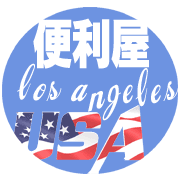  
|